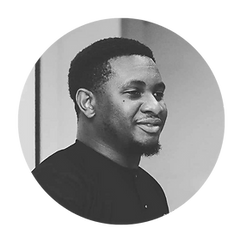Last year, when I served as the guest editor for the inaugural edition of Márọkọ́, I thought I had checked that box on my bucket list and moved on to other things. But if you keep my kind of company, that is, loiter around creative entrepreneurs (a euphemism for literary activists/evangelists, really), you may be drawn back with an offer you cannot refuse.
Efe Paul Azino is smooth at dropping hints. We were having a late lunch on the patio of an Italian restaurant in Queens, watching hard-working New Yorkers return home from work, when he suggested that I might be a likely candidate to edit the second issue of Márọkọ́. I was giddy with wine and exceptionally pleased with my medium well rib-eye steak that afternoon in June, so I said yes, why not! Staying awake this weekend to edit Márọkọ́ II to meet the deadline, I have reflected on my response while listening to Thelonius Monk’s Blue Monk on repeat, and I am glad once again that I offered my services to Márọkọ́, Lagos Poetry International Festival, and the vibrant corpus that is literature.
Literature is the sacred place of language where we commune with and interrogate the intangible aspects of our ancestry and humanity. I find the theme of this year’s festival, Sanctuary, particularly apt. We need to make spaces for this kind of celestial experience in light of what is happening in the Middle East and Eastern Europe. We also need to put ourselves forward as stewards in the vineyard of literature for the lack of a better expression.
At the core of the year’s issue is the Here and Now anthology, a collection of poems and essays resulting from a two-city residency that traversed the Scottish Highlands and Accra, and berthed in Lagos, a strong collaboration between LIPFest and Moniack Mhor (Scotland's National Writing Center), and a rich and powerful opener that bears up the delightful
sophomore return of Márọkọ́.


Dami Ajayi
London, 2023
Editor’s Note
.png)